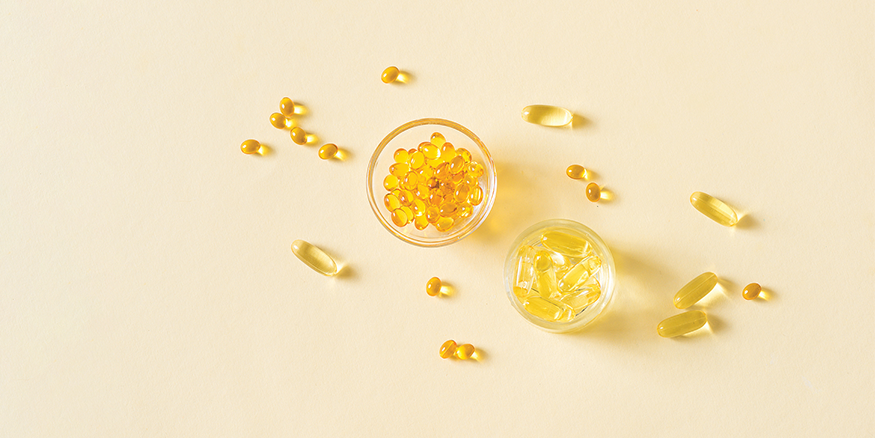Ask A Dietitian
Are fish oil supplements safe and effective?
The consumption of fish oil supplements in Canada is incredibly common and, yes, quality matters. People take fish oil supplements for a multitude of reasons, such as for lowering blood pressure and triglyceride levels in heart disease and hypertension, and for its potentially beneficial anti-inflammatory effects in conditions such as diabetes, obesity, rheumatoid arthritis, and systemic lupus erythematosus.1 Interestingly, it may also help improve mood in severe depression by reducing neuroinflammation in what is considered a chronic low-grade inflammatory disease.1
Fish contain essential omega-3 fats that humans cannot make called EPA and DHA (eicosapentaenoic and docosahexaenoic acid). These omega-3 fats are in other marine life, such as in seals, which I’d rather not eat, and in seaweed, which I’d much rather eat. EPA and DHA are stored in cell membranes throughout the body, especially in the brain and heart.2
Research has shown that higher doses of fish oil supplementation can reduce serum triglyceride levels by as much as 25-30%, and a meta-analysis of randomized trials showed that they helped to reduce inflammatory markers in the blood, such as CRP (C-reactive protein).2 ALA (alpha-linoleic acid) is another omega-3 fat, which is found in plant-based foods, such as walnuts and flaxseed oil. These are great dietary choices, but they do not have the same evidence as the heavily researched and studied EPA and DHA.
Concern and controversy over the safety of fish oil supplements exist, and for good reason. It is much easier to tell what you’re eating when you consume it as a whole food vs when you consume it in a capsule or liquid form.
A 2015 study in New Zealand found that most fish oil supplements did not contain the correct dose of omega-3s that were reported on the bottle, and many of the fish oil supplements were oxidized, meaning that the oil had gone bad and rancid.3
A 2008 study in Vancouver analyzed 30 different fish oil supplements and found that all of them had traces of POPs (persistent organic pollutants) such as PCBs (polychlorinated biphenyls) and OC compounds (organochlorine insecticides).4 These contaminants are associated with negative health effects on the immune system and on endocrine and reproductive functions, and may be carcinogenic.4 Higher levels of these contaminants were found in fish oil supplements sourced from shark, cod liver, and farmed salmon, with lower levels found in mixed fish oil supplements from smaller fish, such as anchovy, mackerel, sardine, and/or the addition of various vegetable oils.
It remains to be determined whether these traces of contaminants are sufficient to be of concern, and the evidence-based database, UpToDate, states that “significant exposure to contaminants from fish oil is not a clinical concern”.
I would suggest choosing high quality fish oil supplements that have been thoroughly purified, as well as those that have been evaluated by a third party. It would also be wise to choose fish oil supplements sourced from wild, instead of farmed, fish. You should avoid supplements sourced from larger marine animals, such as sharks and seals, as they are higher in contaminants.
Of course, sustainability is a key factor to keep in mind, and you might opt to choose a seaweed-based omega-3 supplement instead. In conclusion, there are benefits to fish oil supplementation; however, you should also consider sustainability and quality when deciding which types of products might be good for you.


